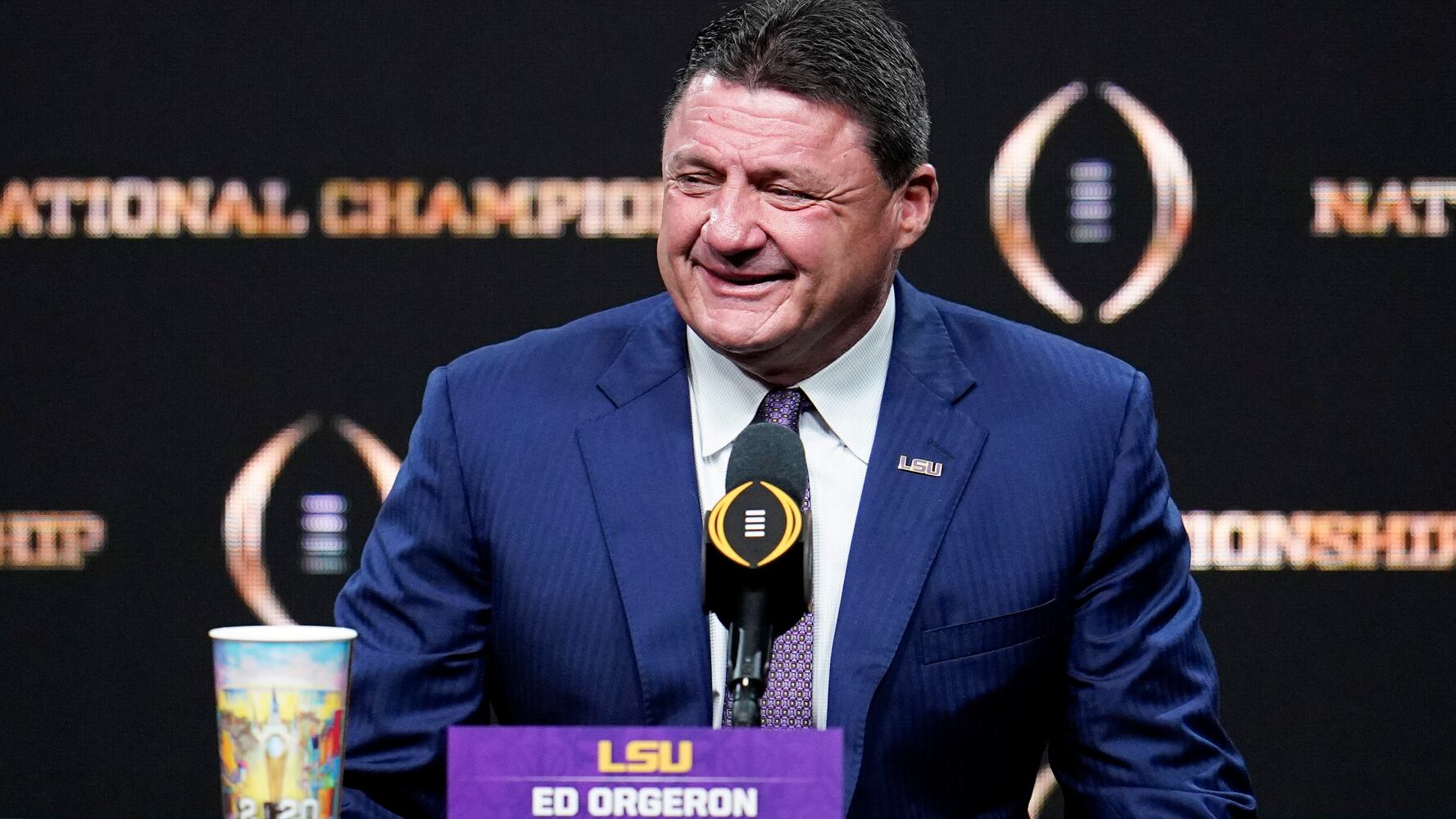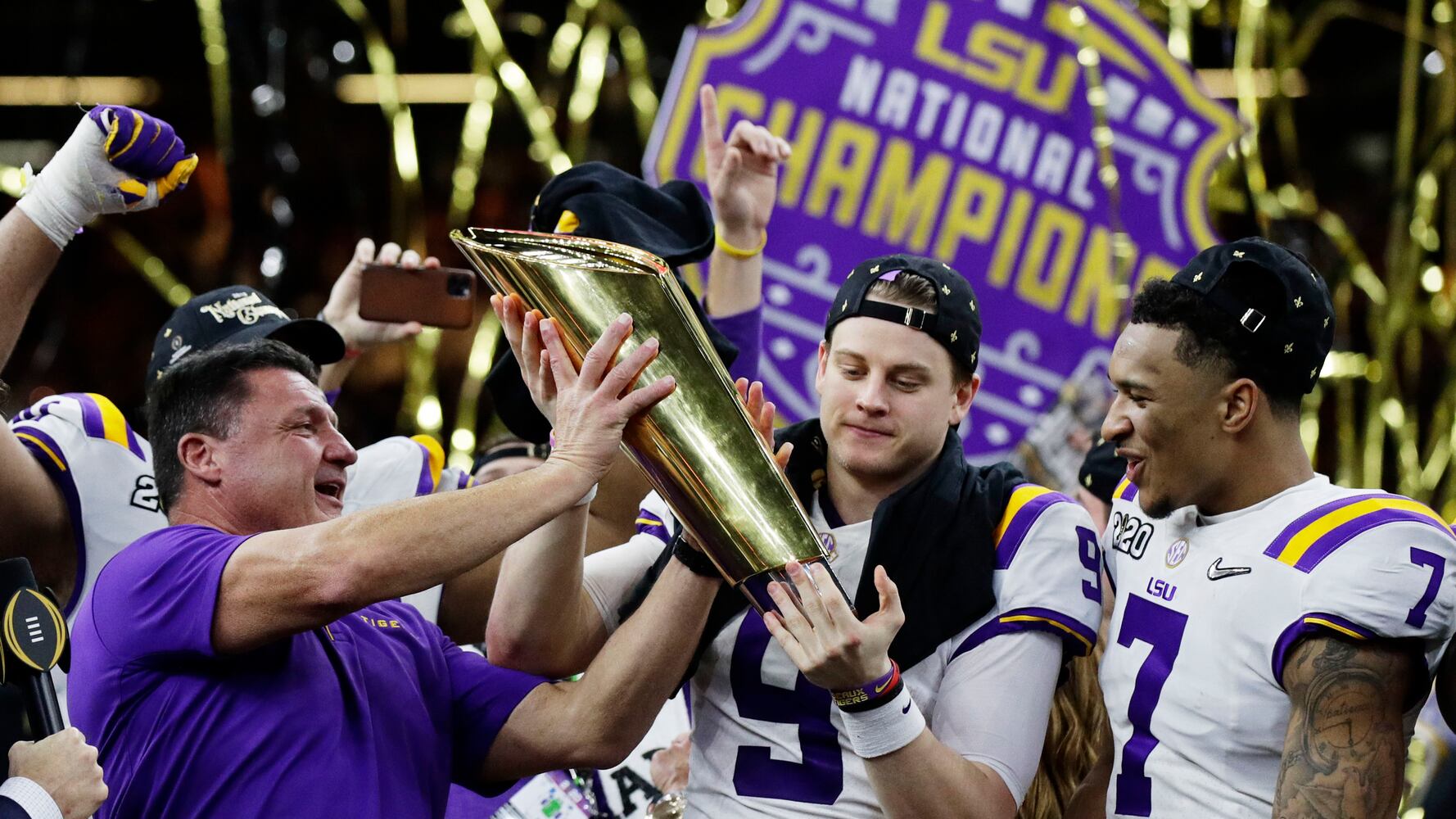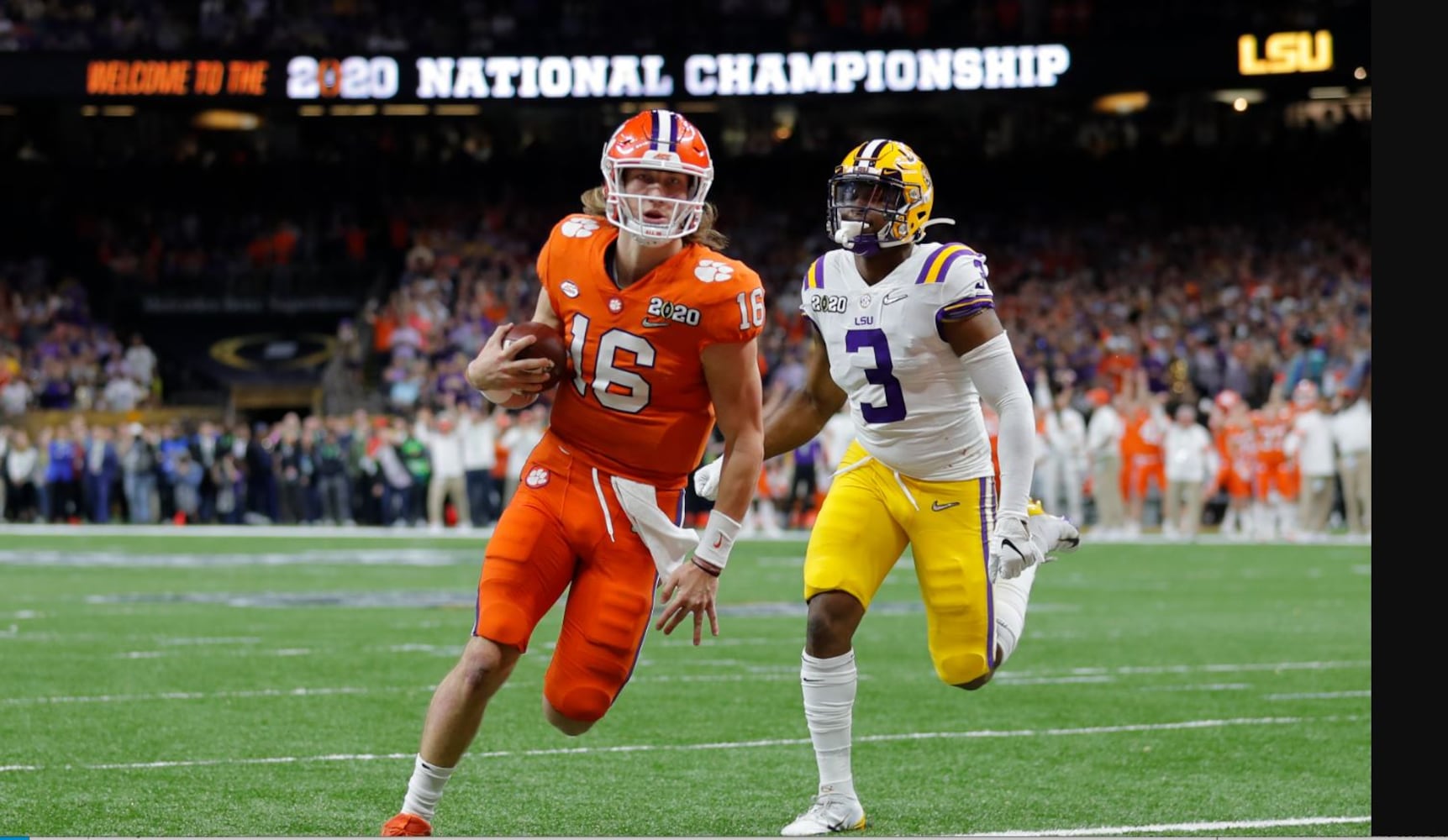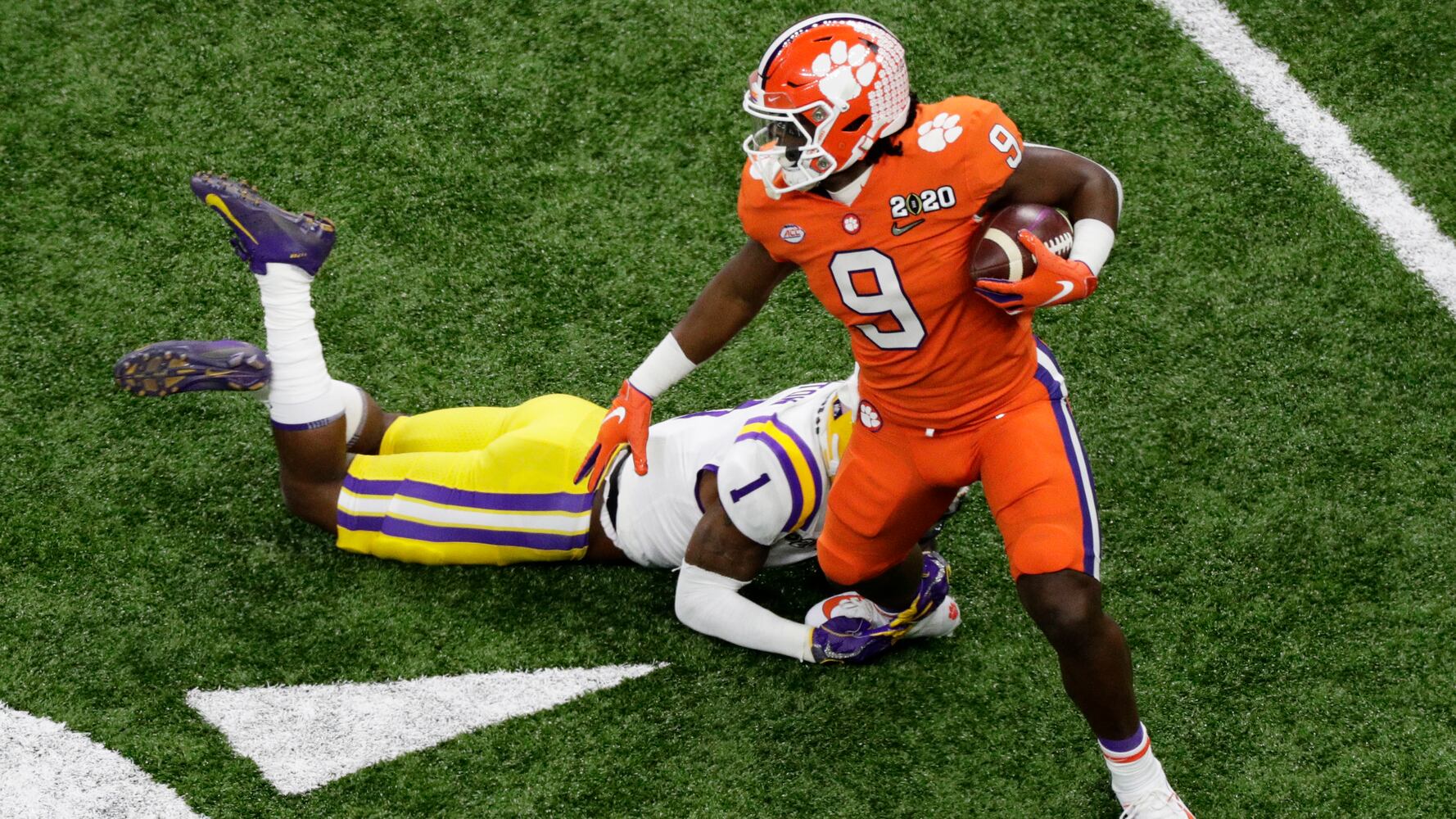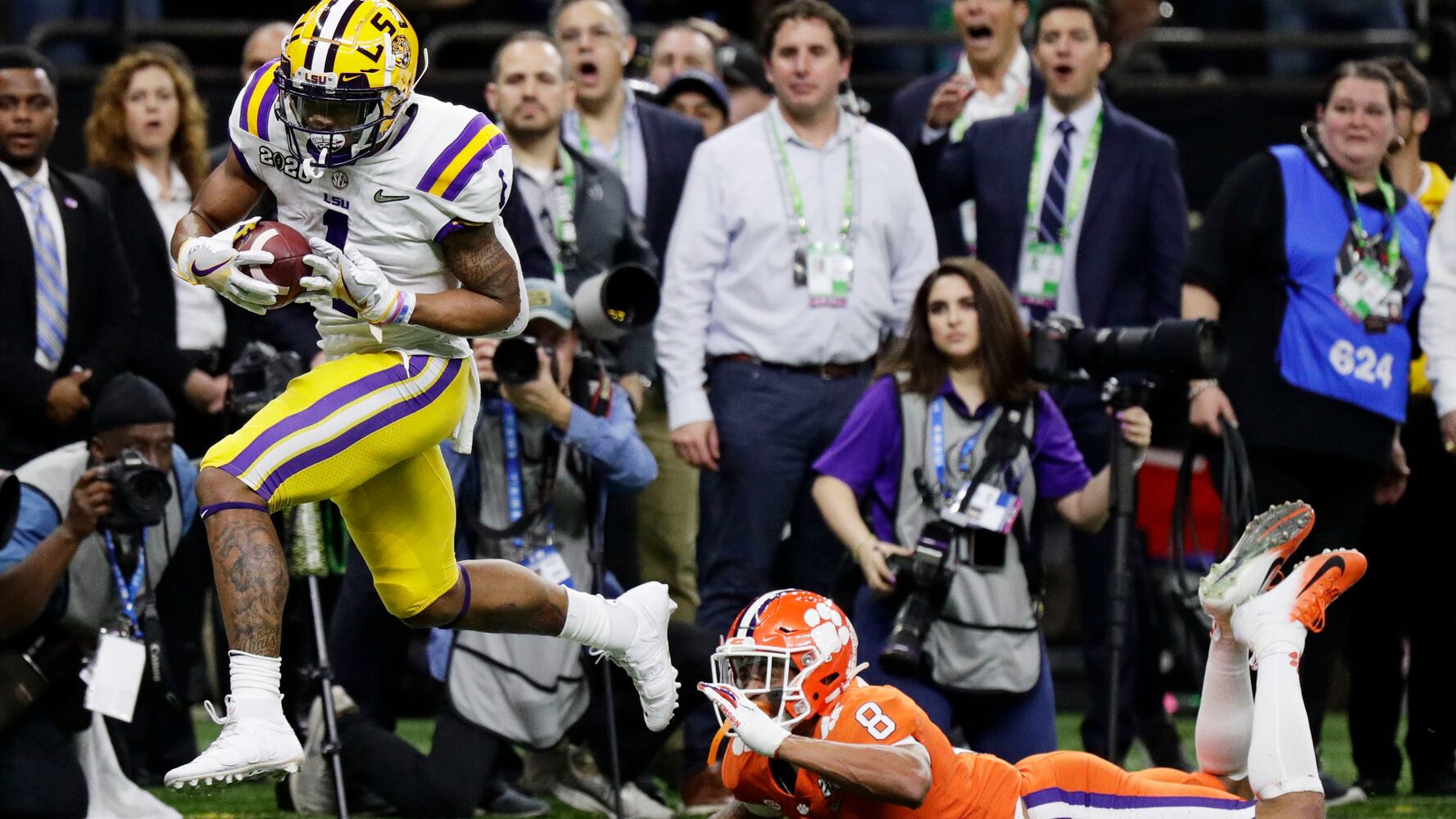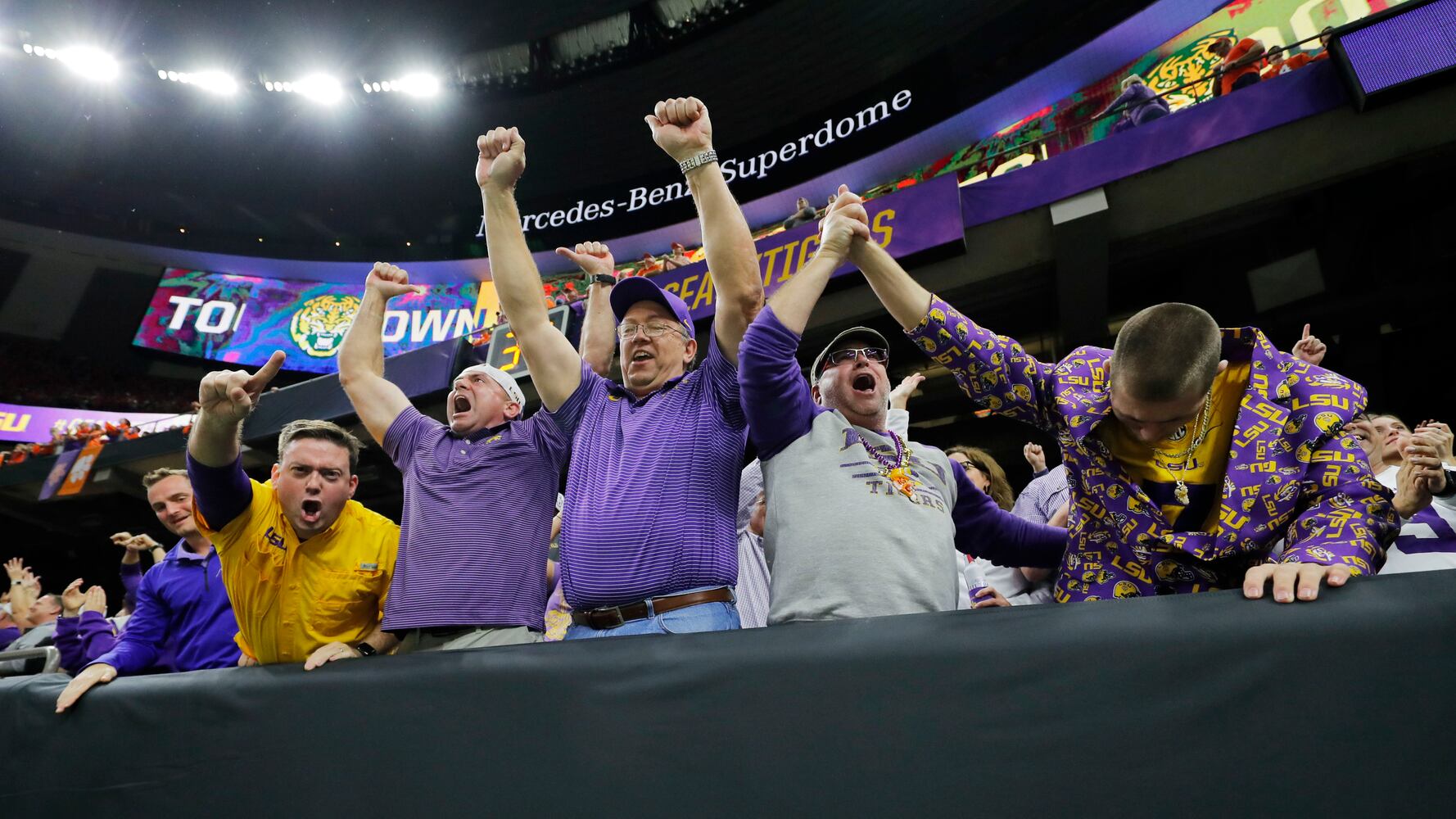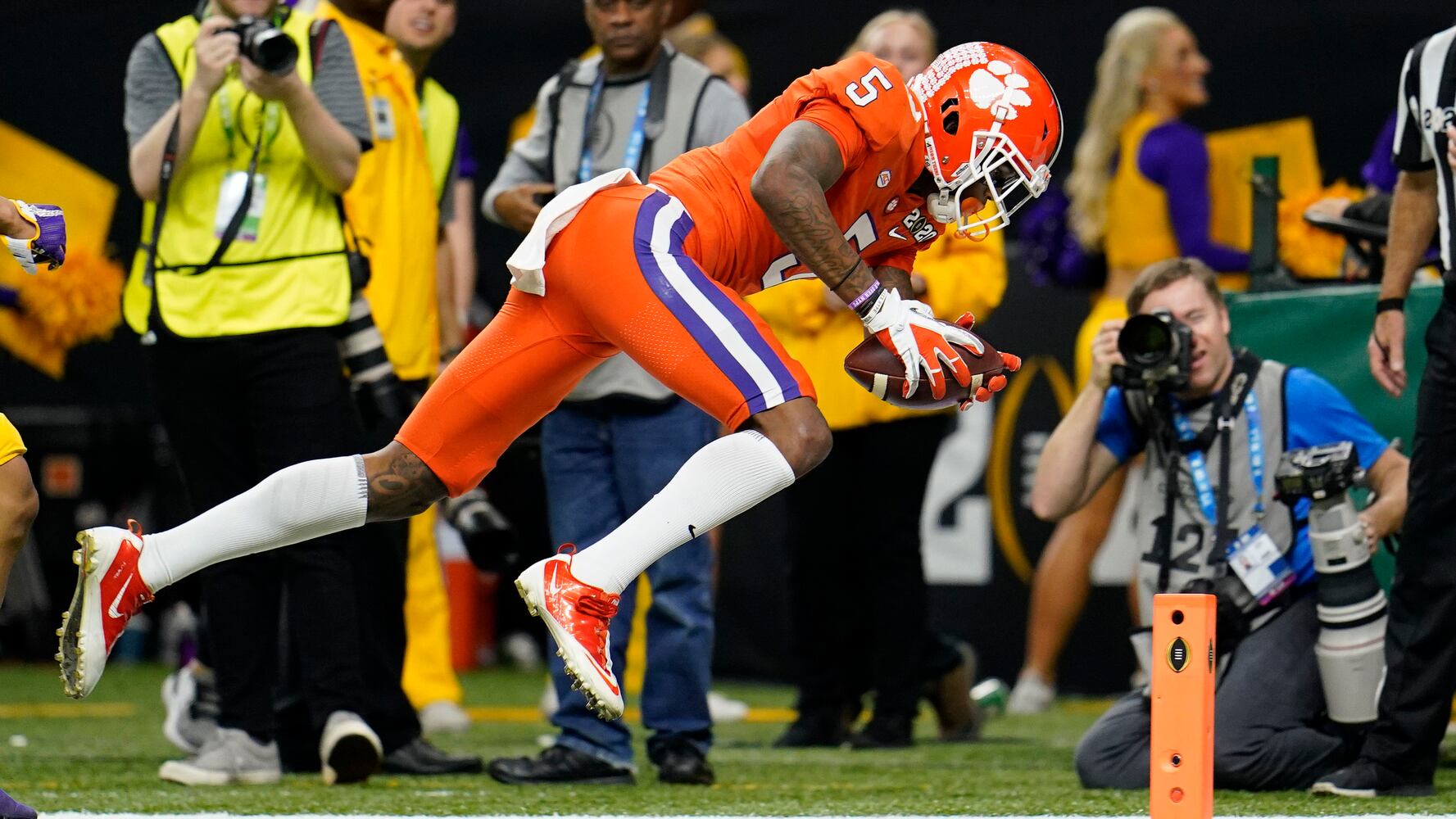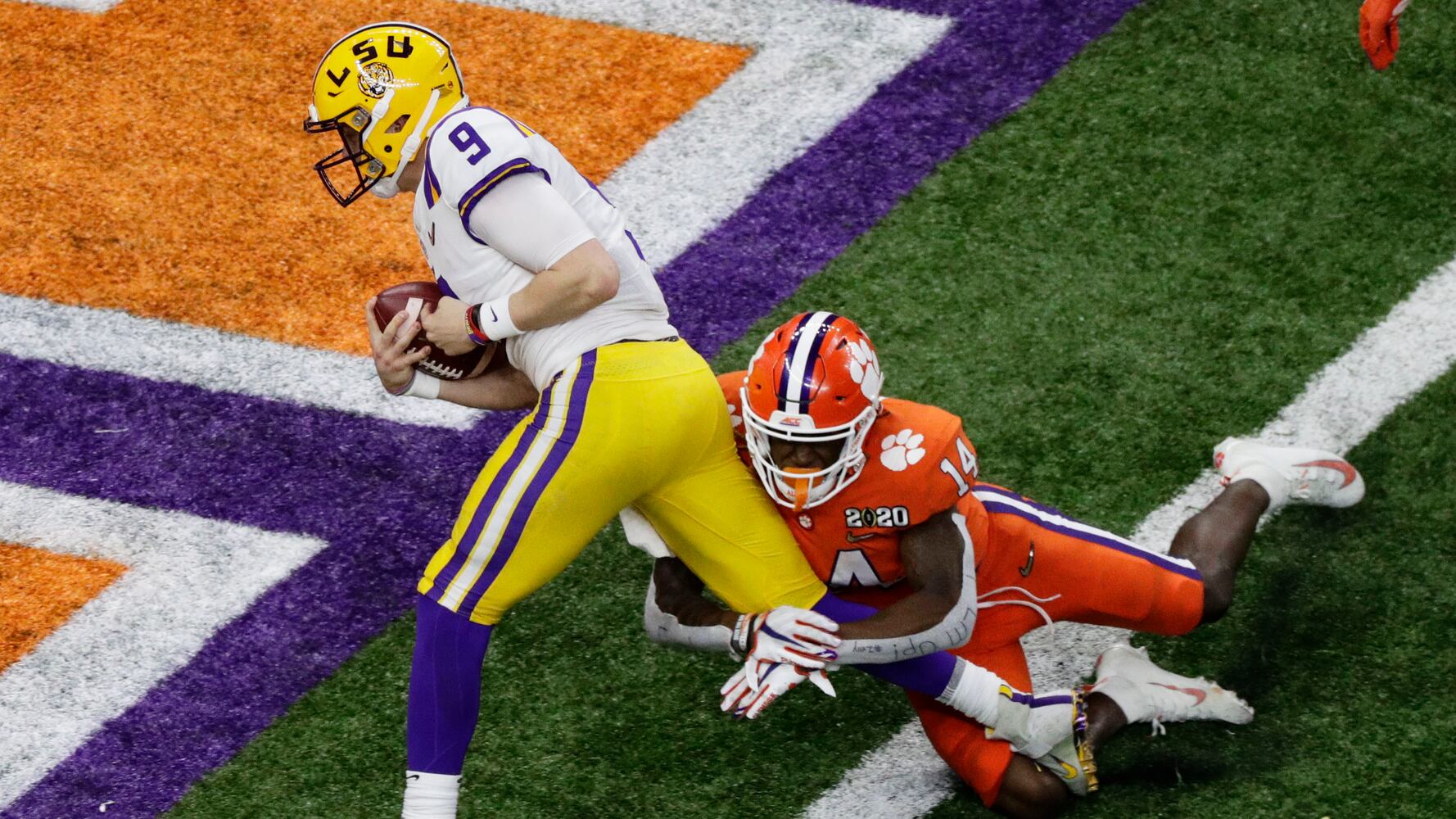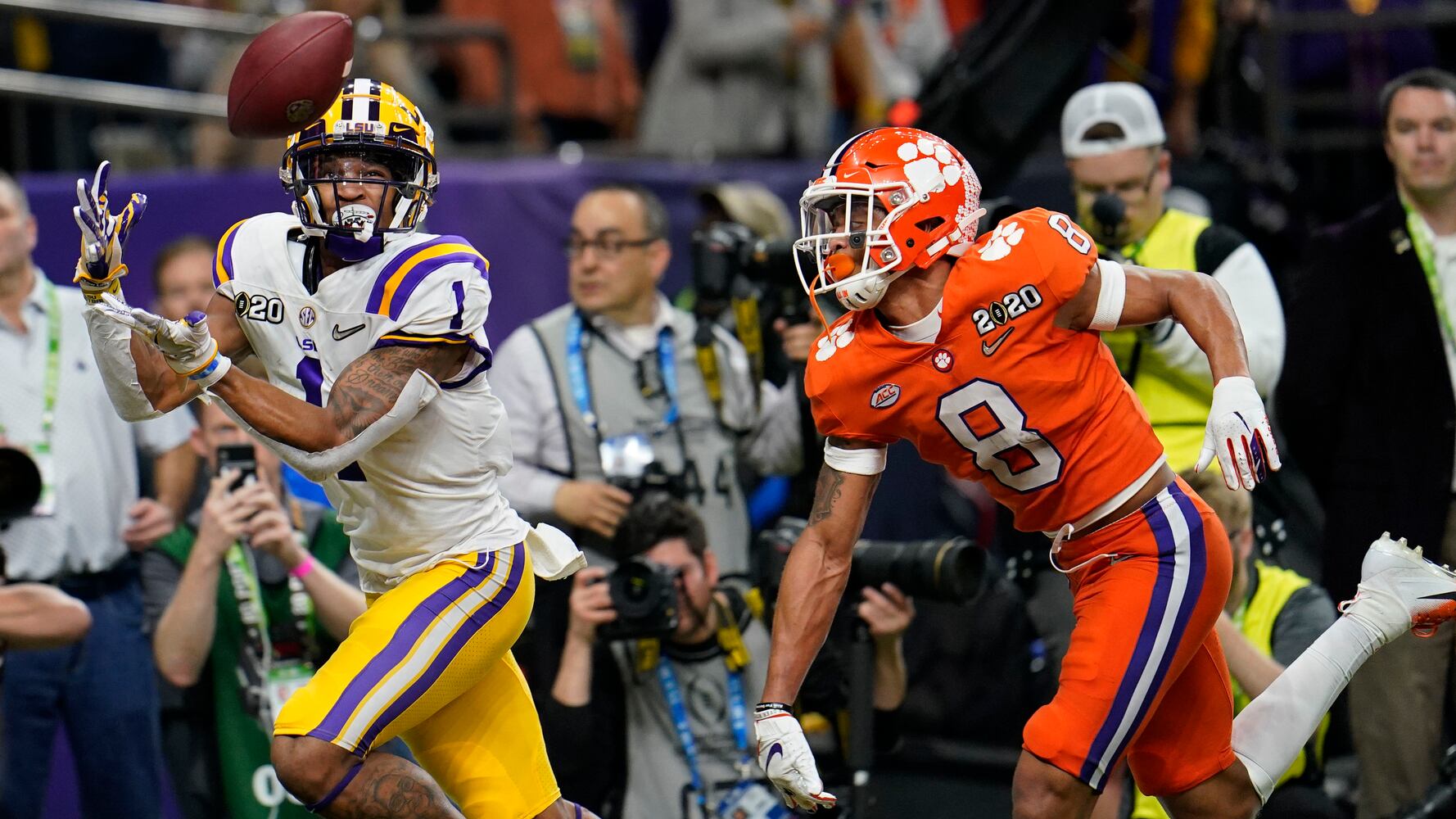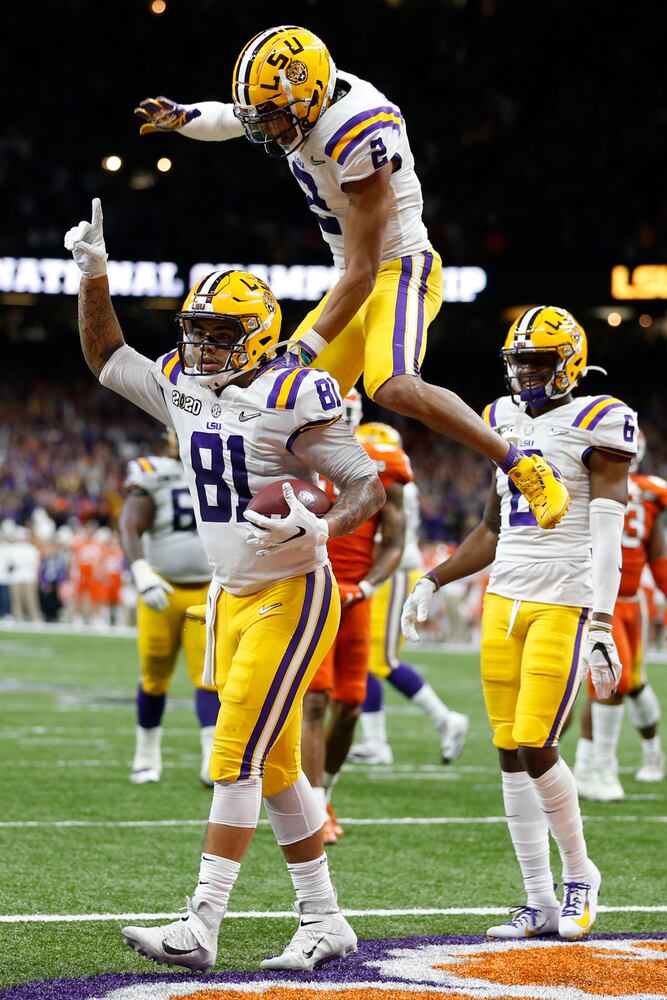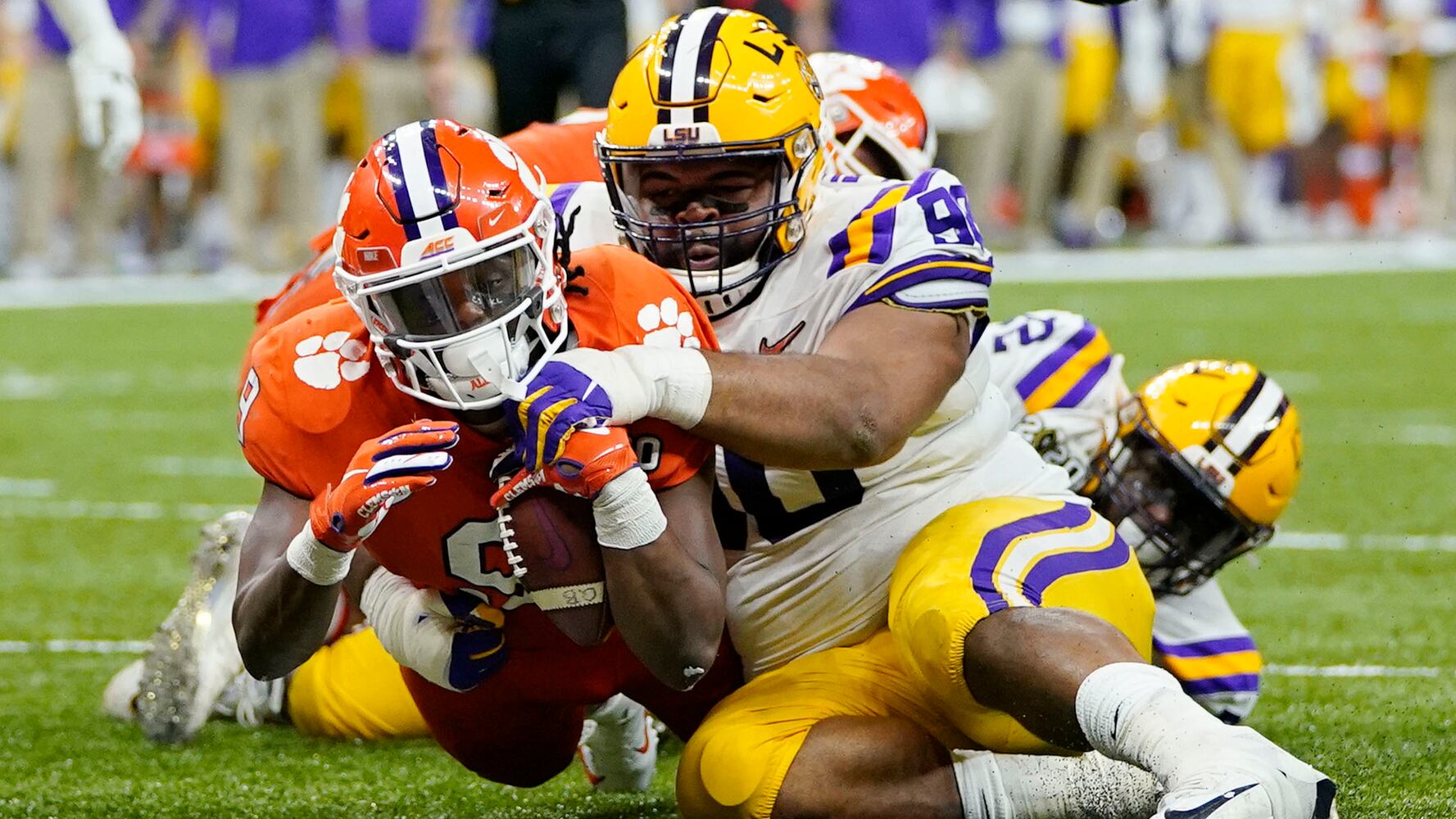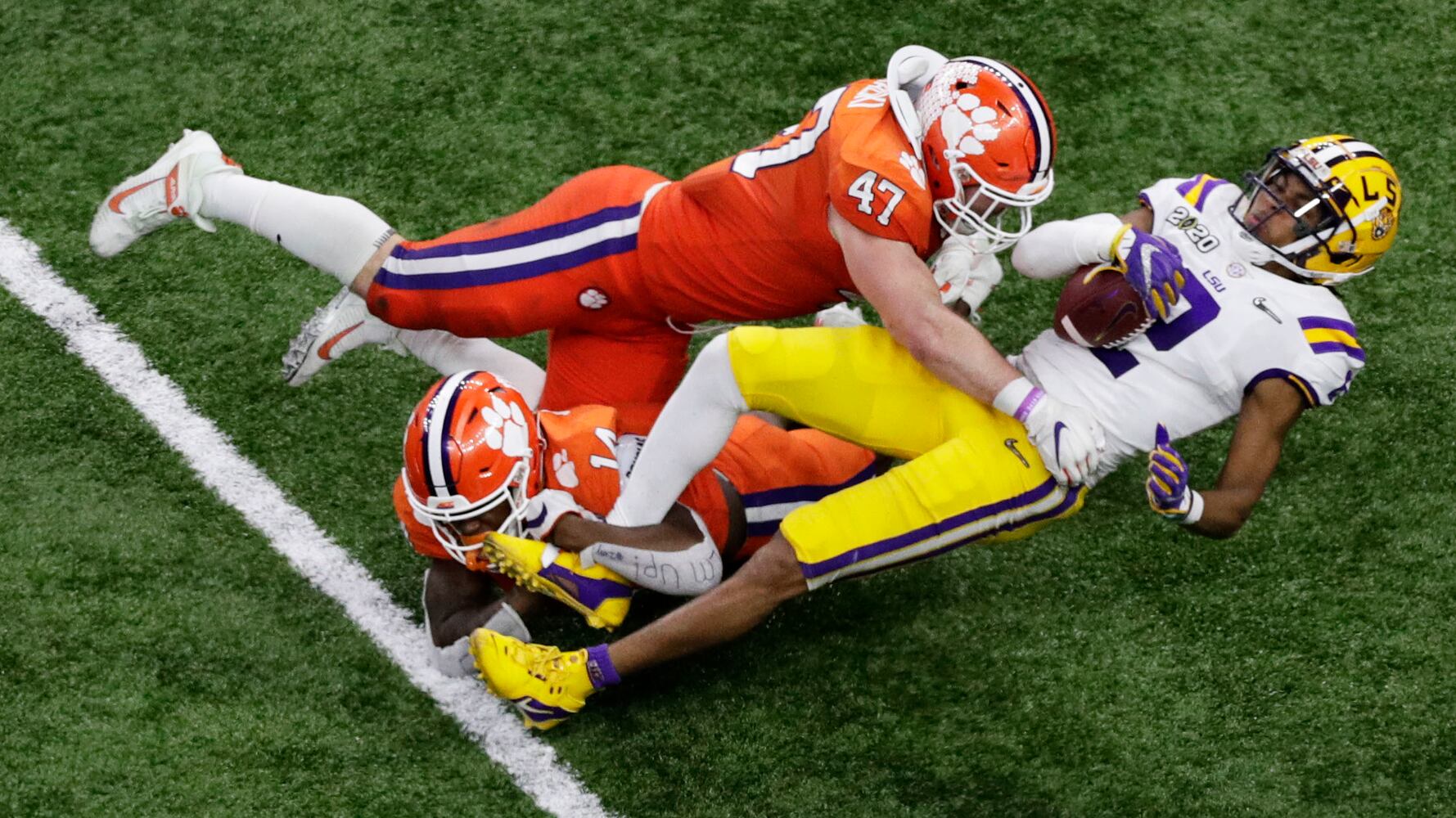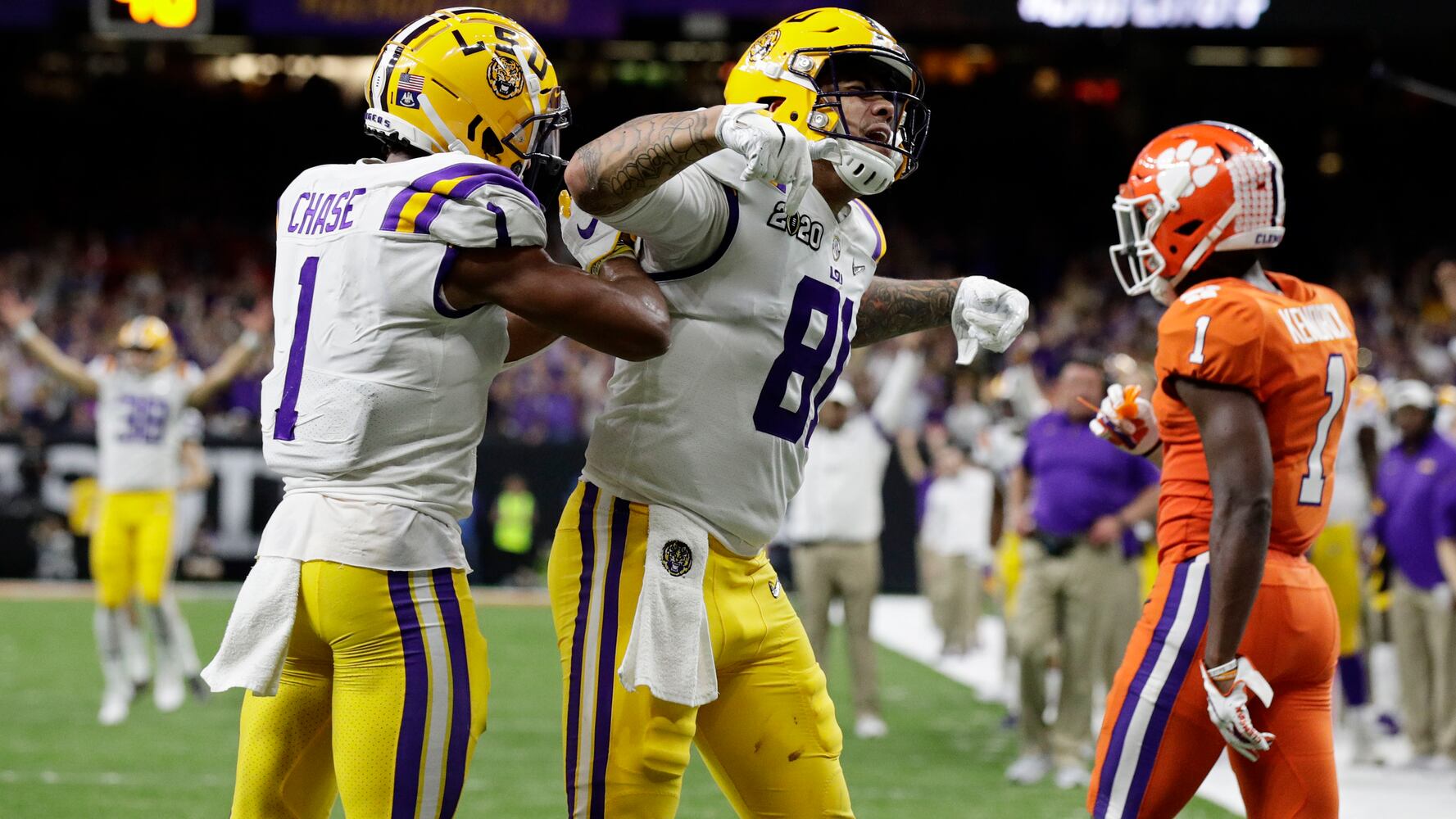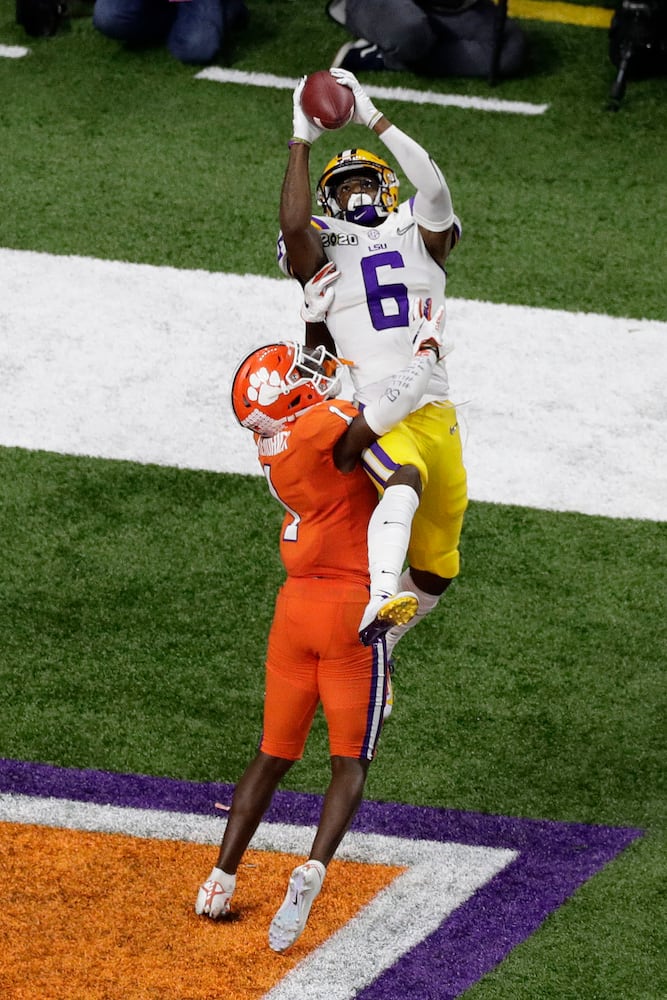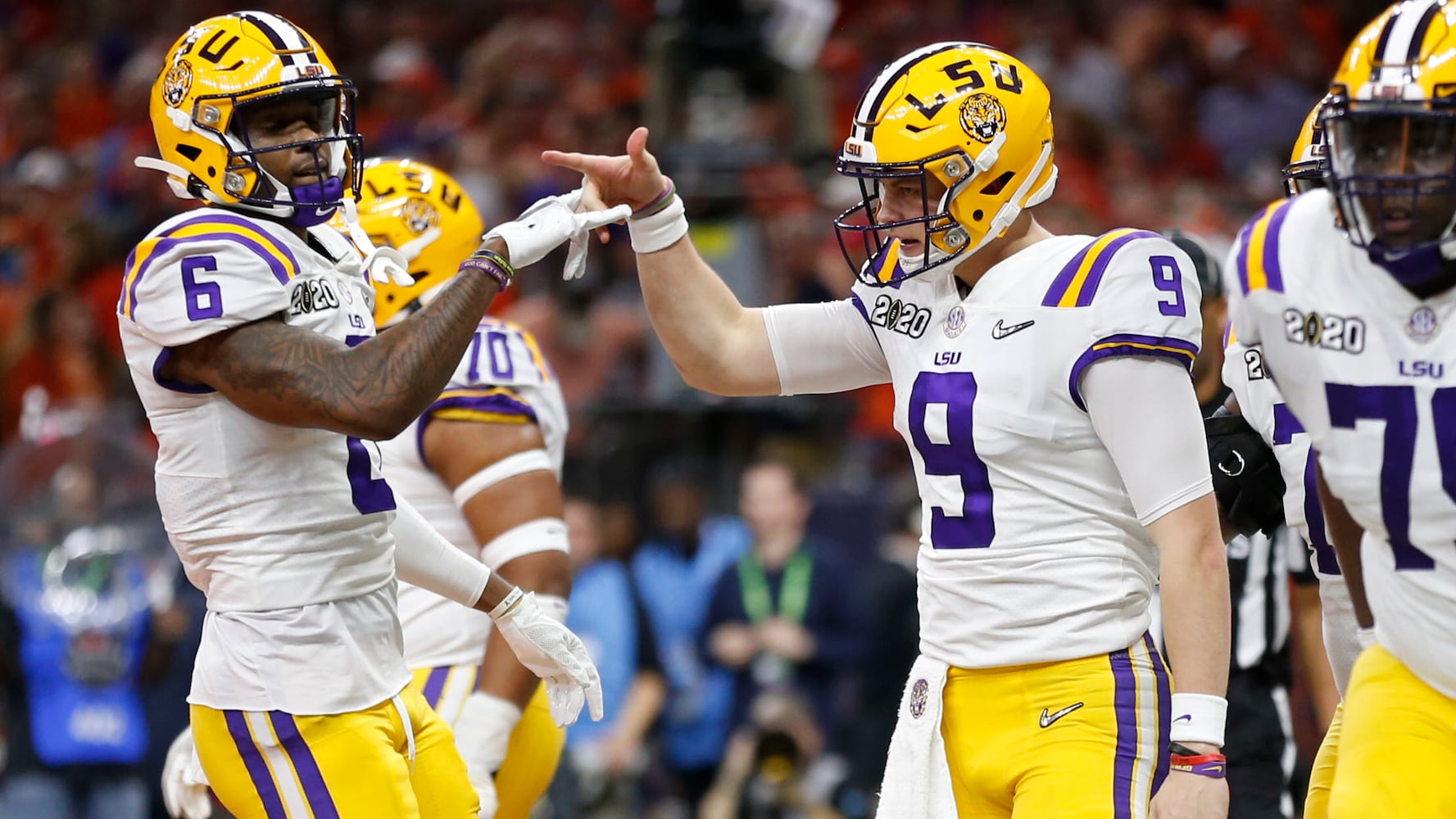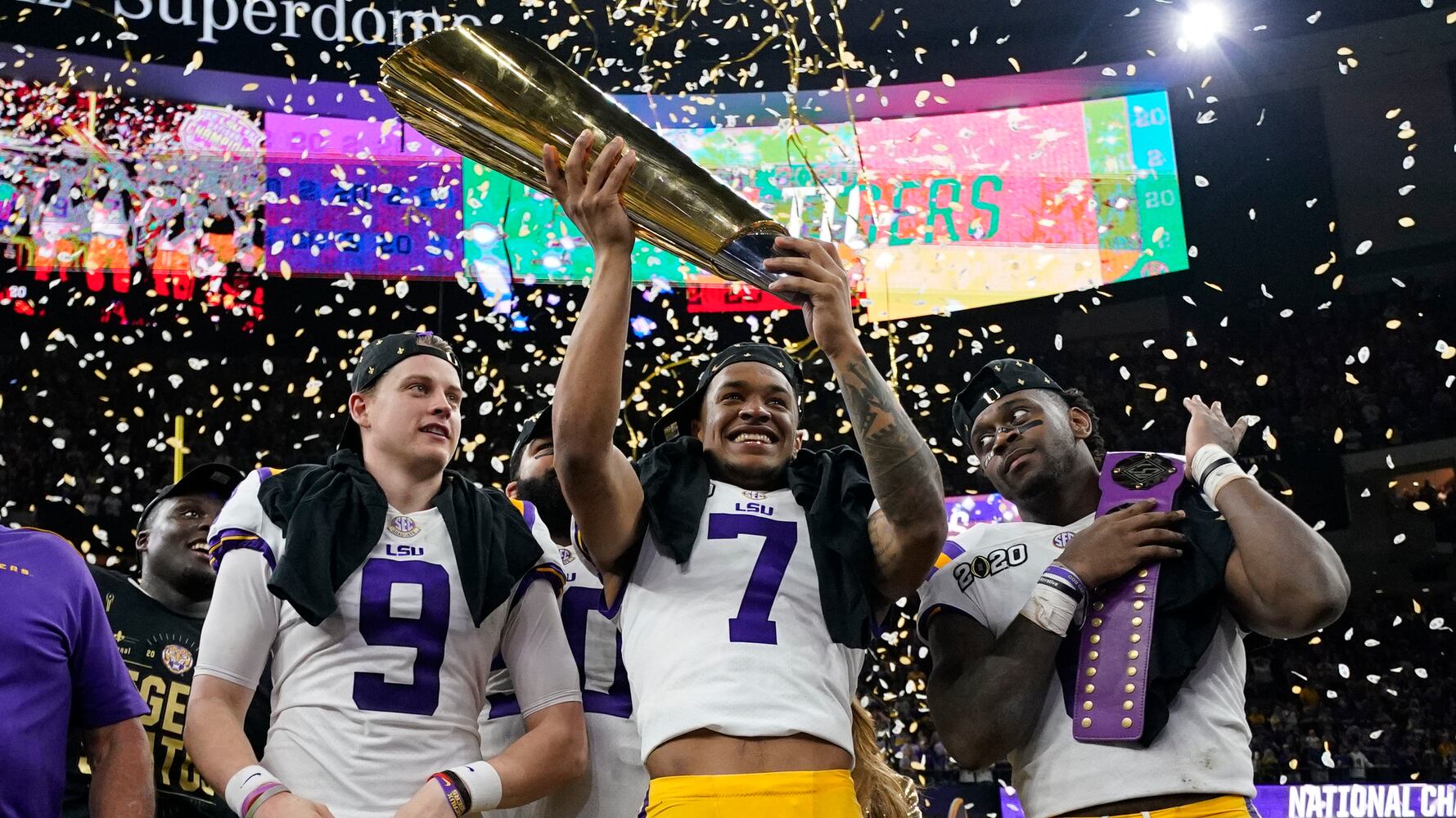At halftime Monday night, ESPN revealed its top 11 collegiate players from the first 150 years of college football. Since ESPN owns the rights to the College Football Playoff, this bore the stamp of legitimacy. I had no great argument with the list, although I’d have put Herschel Walker, No. 2 per the Worldwide Leader, at the top. (Jim Brown was No. 1 to Herschel’s No. 2; Bo Jackson was No. 3, Archie Griffin No. 4, Jim Thorpe No. 5.)
Of note: The first quarterback on the list — though we stipulate that Thorpe was listed as “back,” and in his days that meant the occasional downfield chuck — was Roger Staubach at No. 11. Next was Peyton Manning at No. 21, then Davey O’Brien at No. 24. And this got me to thinking, always a dangerous thing: If the list included this season, where might Joe Burrow land?
Did Burrow have the career of Staubach or Manning? No. Two years ago, he was a mop-up quarterback used at the end of Ohio State blowouts. Last year he didn’t make All-SEC. This year he had the greatest single season of any collegian since — and maybe including — Herschel’s freshman year.
He threw 60 touchdown passes, the most ever. He did this against a schedule that included victories over teams ranked No. 2, 4, 6, 8 and 14 of the final Associated Press poll. He finished with 6,039 yards of total offense. In three postseason games — the SEC Championship game against Georgia, the CFP semi against Oklahoma and the final against Clemson — he threw for 1,305 yards with no interceptions. He scored two rushing touchdowns. He had – pause for effect — 16 touchdown passes.
That’s 16 in three games, 16 in 12 quarters. OK, so Oklahoma’s defense wasn’t much, but Georgia’s and Clemson’s were top-shelf. Didn’t matter. He put the ball where he wanted it. Yes, he has splendid receivers, but they can’t catch what’s not there. And it wasn’t just one receiver Burrow made famous: Justin Jefferson caught four touchdowns in the first half against Oklahoma; Ja’Marr Chase caught two in the first half against Clemson; Terrace Marshall, the third-best wideout, caught five in three postseason games; Thaddeus Moss, the tight end, had three in two playoff games.
This wasn’t just next-level stuff. This was otherworldly. As Clemson coach Dabo Swinney said afterward: “They made some plays tonight that you just got to tip your hat to them because the ball was in the only place that their guy could catch it. I mean, we had great coverage, and that was championship football, and that’s why they’re the champions.”
Remember the spin-away-twice-and-hit-Jefferson-for-71-yards Heisman moment Burrow authored against Georgia? Remember the hurtling-out-of-bounds-throw-to-Marshall from nearly the same spot on the Mercedes-Benz Stadium turf he loosed against Oklahoma three weeks later? Burrow had another of those again Monday, though it didn’t count. On LSU’s first snap, he ducked away from pressure – he’s uncanny at that – and flung the ball to Moss for a 38-yard gain erased for a lineman-downfield penalty.
And LSU’s Adrian Magee had ventured too far beyond the line of scrimmage. Like everyone else, he assumed Burrow was committed to running and couldn’t possibly do what he did.
We live in an era where, at every level of football, the quarterback is the king. We’ve seen great collegiate quarterbacks over the past decade — Winston, Manziel, Mariota, Watson, Mayfield, Tagovailoa, Murray. We saw Trevor Lawrence win a national championship as a freshman. We saw Justin Fields take Ohio State to the playoff in his first season as a starter. We’ve never, however, seen anyone do what Burrow just did.
Three years ago, could we have imagined that LSU, which could barely complete a forward pass, would feature the best passer in the land? The Burrow saga is a harmonic convergence — Ed Orgeron dared to bring his offense into the 21st century, and the callow Joe Brady, imported from the New Orleans Saints, made the pieces fit — but there could have been no harmony without Burrow slinging the pig in a way a sport celebrating its sesquicentennial had never seen.
Apologies for all the gushing, but I submit that it would be impossible to have watched Burrow this season and do anything else. I don’t know how good a pro he’ll be, though I’d imagine he’ll do fine. I don’t feel entirely comfortable dubbing him the greatest college quarterback ever because, as noted, we’re basically working off one year. That said, his big year was historic. It was also instructive.
How much can a transfer quarterback mean to a program? We’d seen transfers win the Heisman Trophy (Mayfield, Murray) before, and we’d seen transfers lift a team to a title (Newton, Coker). Burrow did both of those things and more. He took a program in dire need of reconfiguring and made rendered it sleek and invincible. Not that everyone wasn’t looking for a franchise quarterback before, but now everyone will also be in search of the QB whisperer Orgeron found in Brady.
Because everything that succeeds in sports is immediately copied, we can look for big-time college programs looking to fill their offensive staffs not with hot young recruits or solid retreads but with somebody who speaks the NFL argot. We can also look for this tack to produce failures. Just as there has been only one Joe Burrow, there might be only one Joe Brady. And did the two ever click.
About the Author
The Latest
Featured
